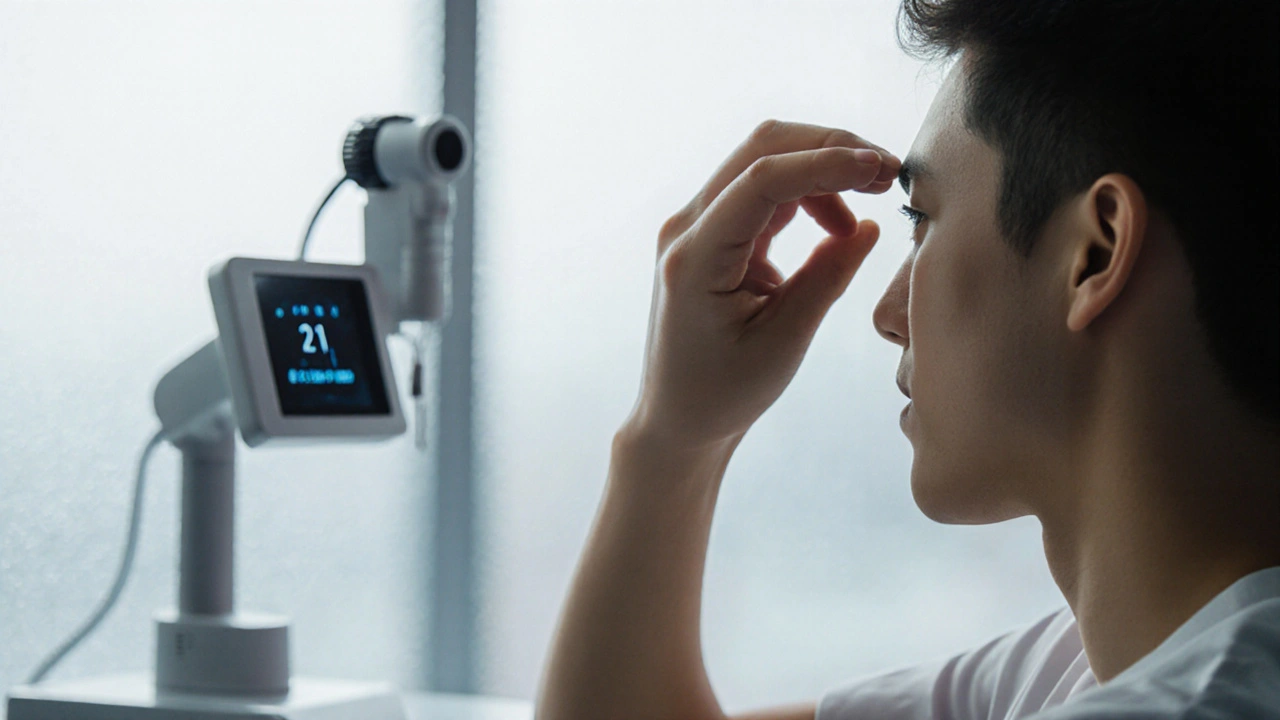Eye health: simple tips and what to watch for
Healthy eyes make everyday life easier. This page pulls practical advice, quick habits, and clear signs that mean you should see a professional. No fluff—just actionable steps you can use today to protect your sight and avoid common mistakes.
Quick everyday habits
Wash hands before touching your eyes or handling contacts. Replace contact lenses and solution as your eye care provider recommends; wearing lenses too long raises infection risk. Follow the 20-20-20 rule: every 20 minutes look at something 20 feet away for 20 seconds to ease screen strain. Wear sunglasses rated UV400 to block harmful rays when you go outside. Blink often when reading or using screens; blinking refreshes the tear film and reduces dryness.
Use eye drops correctly: tilt your head back, pull down your lower lid, squeeze one drop into the pocket, then close your eye for 30 seconds. If you use medicated drops like brimonidine (Alphagan), follow the prescribed schedule and tell your doctor about other medicines you take. Don’t share eye drops, and discard single-use vials after one use.
Nutrition, supplements, and sleep
Eat foods high in omega-3s, lutein, and zeaxanthin—leafy greens, eggs, and fatty fish help support vision. A balanced diet with vitamin C, vitamin E, zinc, and copper supports eye health, especially as you age. Supplements can help when diet falls short, but talk to your doctor before starting anything new. Aim for consistent sleep; poor sleep worsens dry eyes and eye irritation.
Smoking increases the risk of macular degeneration and cataracts. Quitting smoking reduces those risks and improves overall circulation, which benefits the eyes.
Be careful with over-the-counter treatments. Some allergy or redness-relief drops temporarily shrink visible blood vessels but can cause rebound redness if used daily. Ask a pharmacist which products suit your symptoms instead of guessing.
Protect your eyes at home and work. Wear safety goggles for yard work, power tools, or chemicals. Position monitors slightly below eye level and adjust brightness and contrast to reduce glare. Use proper lighting when reading to avoid squinting.
If you wear makeup, replace mascara every three months and remove all makeup before sleeping. Rinse brushes regularly to avoid bacterial buildup that can transfer to your eyes.
Regular checkups catch problems early. Adults should get routine eye exams every one to two years, or more often if you have diabetes, high blood pressure, or a family history of eye disease. Children need checks before school starts and whenever vision problems show up.
Know the red flags: sudden vision loss, flashes of light, new floaters, severe eye pain, double vision, or a painful red eye with sensitivity to light. These require immediate medical attention and sometimes emergency care.
Use the links on this tag to read detailed posts about drops like Alphagan, common medications, and safe online pharmacies that deliver eye care products. If something feels off, don’t wait—reach out to an eye care professional for advice and testing.
Small changes add up fast. Start today.
- October 12, 2025
- Comments 15
- Health and Wellness
High Eye Pressure & Eye Twitching: Understanding the Link
- July 31, 2023
- Comments 13
- Health and Medicine


